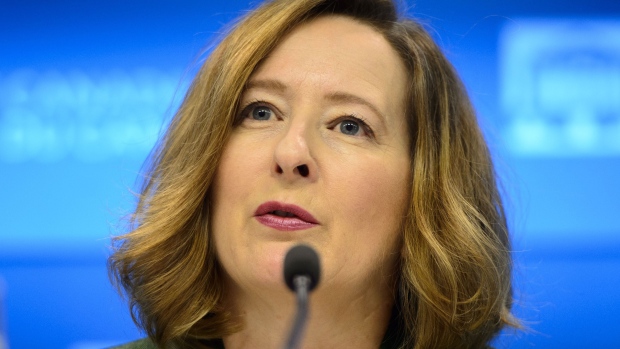
Economic resilience can't be left to market forces alone: Wilkins
BNN Bloomberg
A report released Wednesday from members representing the G7 suggests political leaders must collaborate on policies to achieve their top priorities if they want to safeguard their countries against future economic shocks.
A report released Wednesday from members representing the seven largest advanced economies in the world suggests political leaders must collaborate on policies to achieve their top priorities if they want to safeguard their countries against future economic shocks.
The G7 Panel on Economic Resilience recommended leaders focus on seven areas that includes strengthening supply chains – a critical weakness that the pandemic has undoubtedly exposed - while addressing other challenges of the mid-21st century such as access to critical minerals and cyber threats.
“You can’t have global resilience by letting market forces unleash completely,” said Carolyn Wilkins, the Canadian representative on the panel that compiled the extensive report and former senior deputy governor of the Bank of Canada.
“Certainly there are great things with market forces but you need good labour standards, you need to think about the climate, you need to think about social aspects of the economy to support economic resilience and get the outcomes we say we value, like good health and a good environment,” she said.
Industries around the world from automakers to food processors to clothing manufacturing have grappled with supply chain issues following the COVID-19 pandemic with some companies fearing they won’t have inventory adequately stocked in time for the crucial holiday shopping season.
The report comes on the same day U.S. President Joe Biden addressed the supply chain crisis at the White House. Biden pledged to bolster domestic manufacturing so more goods would be made in the U.S.
